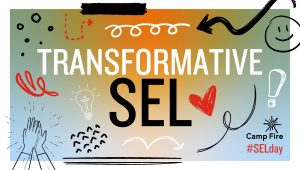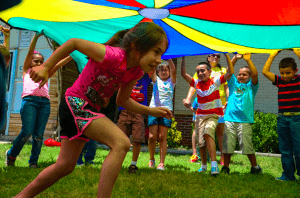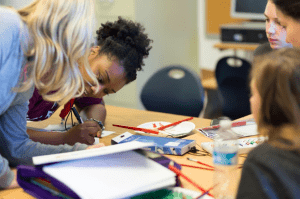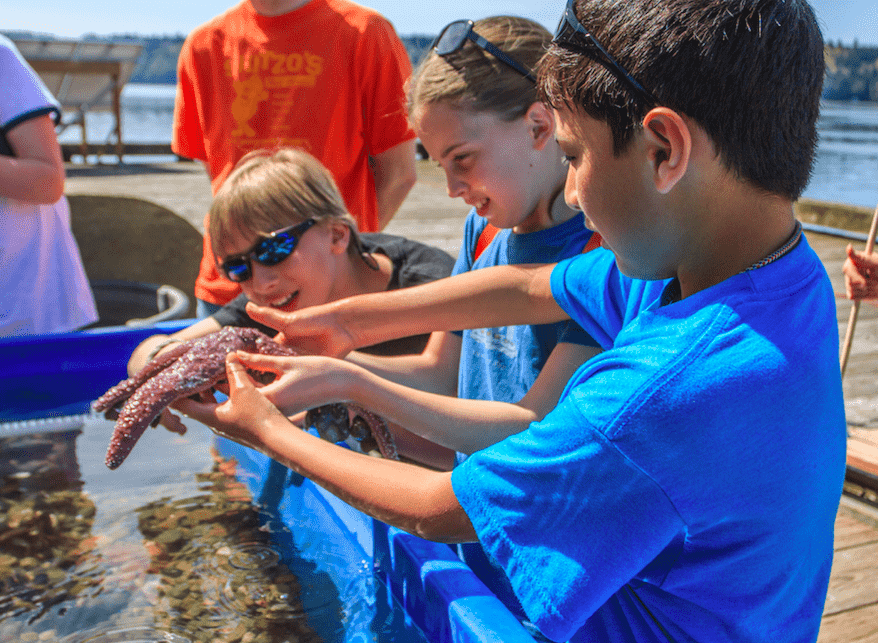
Reflection isn’t a one-and-done kind of thing. You don’t take a “how-to-reflect lesson” and call it good.
Reflection is a skill that grows over time with regular practice until it becomes an unbreakable habit.
This critical life skill can be life-changing (no matter your age). How often do we in today’s society take time to reflect on where we are, how we got there, what we want or need to change, how we feel, why, and where we want to go?
We believe reflection is so important that it is the glue that holds Camp Fire’s Thrive{ology} framework together. Without reflection, we’re not able to identify our sparks, practice a growth mindset or set smarter goals. The ability to see ourselves and our experiences clearly—and draw meaning from what we see—is essential for a thriving life.
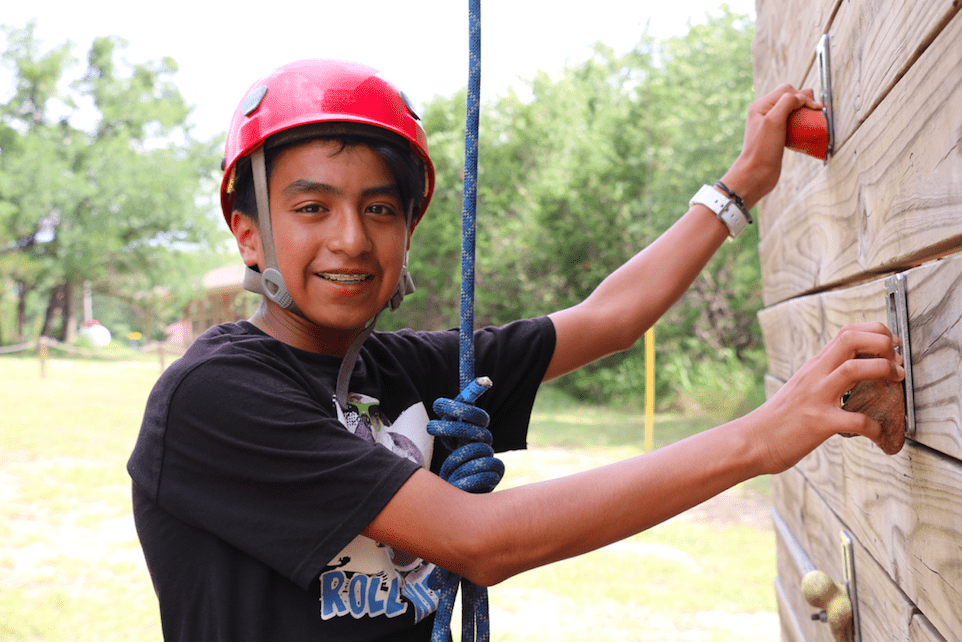
That’s why we build reflection into everything Camp Fire does. The official Camp Fire definition of reflection is “a process and a learned skill which promotes the examination and interpretation of experience and the promotion of cognitive learning.”
Our highly trained staff and volunteers create environments that allow for reflection. We intentionally give young people the space to be themselves, to experiment with ideas and to open up. Our kids and teens learn to make time for self-reflection and ask themselves (and others!) big life questions.
We really mean it when we say there aren’t any wrong answers or silly questions at Camp Fire. We’re all-in on the improv-artist mantra “Yes, and…” to keep positive conversations going. And we listen.
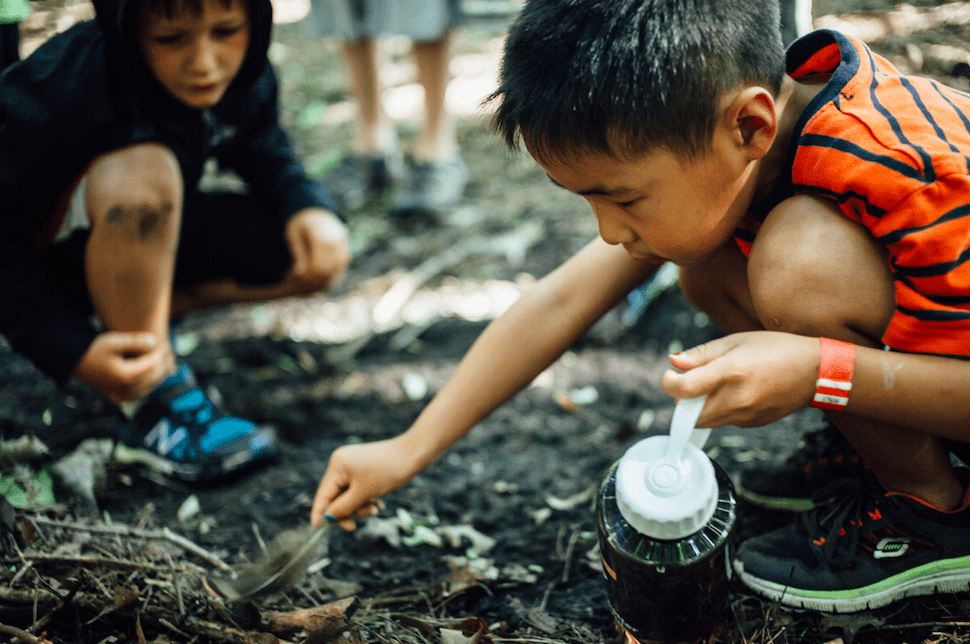
We want all of our youth to be able to reflect on their Camp Fire experiences. We introduce younger children (kindergarten through 2nd grade), to the idea that learning is a cycle of “planning, doing and reviewing.” As they get a little older, (3rd through 5th grade), kids are able to reflect on more conceptual subjects like character attributes and changes they want to make in their own lives.
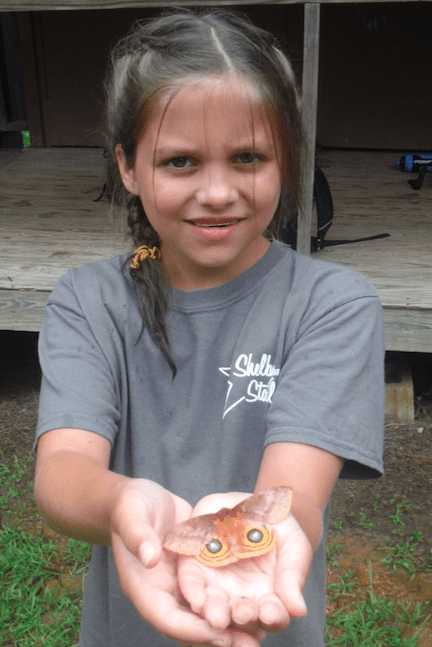
This preparation gives older youth (6th through 12th grade) the skills to think about some really serious subjects. Researchers have identified a list of “thriving indicators”—guideposts that point toward youth who are healthy, learning and living up to their potential. You know, just crushing it in general.
Camp Fire helps older youth think about thriving indicators, focusing on six in particular: social skills, life skills, conflict resolution, confidence, purpose and appreciation of nature.
Are they making progress in a specific area? Struggling in another? Wanting to pay more attention, learn or grow?
In our next post, we’ll explore our thriving indicators in more detail. Later, we’ll share some prompts that can lead both kids and adults to deeper reflection. So let’s get reflecting!
How do you make regular reflection part of your life?


